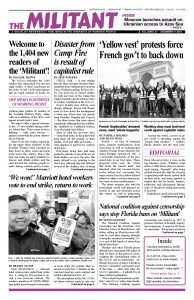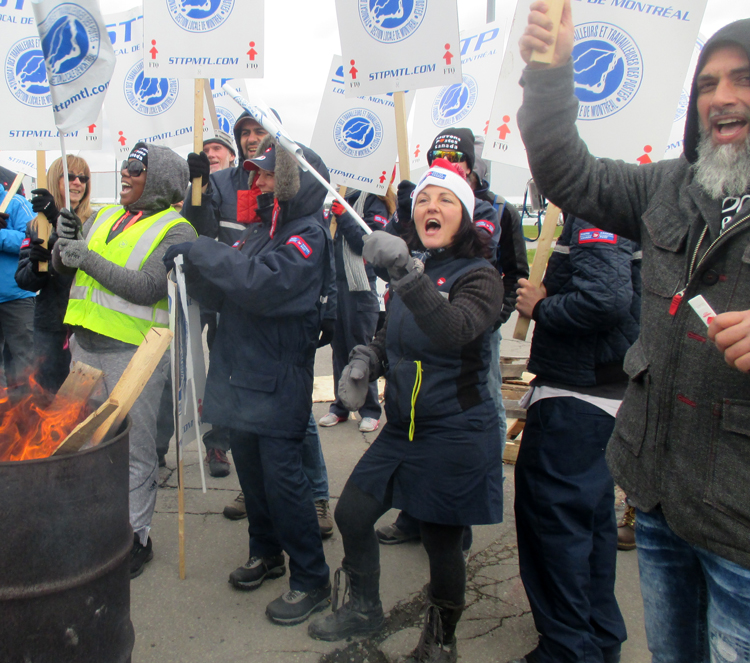VANCOUVER, British Columbia — After six weeks of rotating strike actions, the federal government Nov. 26 ordered some 50,000 members of the Canadian Union of Postal Workers back to work. The legislation rushed through made further strike action illegal.
“Christmas gifts are more important than people’s rights. Our health and safety is put aside in favor of big profits for large corporations,” Denny Pasquier, an inside postal worker since 2007, told the Militant as we joined him picketing in Richmond.
Because they deliver more packages of goods ordered online, “letter” carriers face heavier loads. With no adjustments in the number of workers or the size of the routes, injuries have soared. Postal workers report five times more disabling workplace injuries than other federally regulated workers, like longshoremen, rail workers and miners. “Canada Post is becoming … more and more a wing of the retail sector,” the Toronto Globe and Mail editorialized Nov. 21. “Parcel revenue was up 23 per cent last year, and cracked $2 billion for the first time.”
The postal workers’ demands center on the need for more hiring and an end to forced overtime.
The Retail Council of Canada, eBay Canada, and the Canadian Federation of Independent Business were among the employers’ organizations clamoring for back-to-work legislation.
“The only power a union has comes from the solidarity of the members,” picket captain and letter carrier Sarah Hanon told Walmart workers Simran Singh and Katy LeRougetel as we joined their picket at the Surrey, British Columbia, post office Nov. 23. “The only way we can express that power is strike action. If that’s taken away, we have no power.”
Her local was protesting the back-to-work law. One union demand is that rural mail carriers, who are majority female, get the same pay and treatment as their urban counterparts.
When working people hear the facts about postal workers’ conditions, they wholeheartedly support the strikers, Communist League members have found, as they take news about the strike and the stakes in it to workers on their doorsteps. But there has been little organized union solidarity to spread the word and draw others into the fight.
Some 150 unionists and others rallied here Dec. 1 against the back-to-work legislation, one of 27 actions across the country that day.
The last postal workers strike in 2011 also ended with government-ordered back-to-work legislation, which CUPW challenged in court. Five years later, a court ruled in the union’s favor.
The back-to-work law imposes mediation, followed by binding arbitration.


